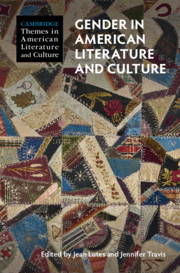Book contents
- Gender in American Literature and Culture
- Cambridge Themes in American Literature and Culture
- Gender in American Literature and Culture
- Copyright page
- Contents
- Contributors
- Acknowledgments
- Introduction
- Part I Intimacies
- Part II Aggressions
- Chapter 8 Sexual Violence and Indigenous Women
- Chapter 9 Intergenerational Memory and the Making of Indigenous Literary Kinships
- Chapter 10 US Women Writers, Sexual Violence, and Narrative Resistance
- Chapter 11 Gender, Violence, and Accountability in Contemporary Queer Latina Writing
- Chapter 12 The Literature of Racial Uplift and White Feminist Failure
- Chapter 13 Black Male Studies and Contemporary African American Writing
- Chapter 14 Representations of White Masculinity in Veteran-Authored Iraq War Fiction
- Part III New Directions
- Bibliography
- Index
Chapter 9 - Intergenerational Memory and the Making of Indigenous Literary Kinships
from Part II - Aggressions
Published online by Cambridge University Press: 01 April 2021
- Gender in American Literature and Culture
- Cambridge Themes in American Literature and Culture
- Gender in American Literature and Culture
- Copyright page
- Contents
- Contributors
- Acknowledgments
- Introduction
- Part I Intimacies
- Part II Aggressions
- Chapter 8 Sexual Violence and Indigenous Women
- Chapter 9 Intergenerational Memory and the Making of Indigenous Literary Kinships
- Chapter 10 US Women Writers, Sexual Violence, and Narrative Resistance
- Chapter 11 Gender, Violence, and Accountability in Contemporary Queer Latina Writing
- Chapter 12 The Literature of Racial Uplift and White Feminist Failure
- Chapter 13 Black Male Studies and Contemporary African American Writing
- Chapter 14 Representations of White Masculinity in Veteran-Authored Iraq War Fiction
- Part III New Directions
- Bibliography
- Index
Summary
Indigenous women carry forward intergenerational histories of transmuting trauma into what Leanne Betasamosake Simpson calls “a gorgeous generative refusal of colonial recognition.” Drawing on methodologies by Indigenous scholars Dian Million, Daniel Justice, Leanne Simpson and Audra Simpson, this essay traces an intergenerational literary praxis that highlights models of critical kinship, felt theory, and refusals. More specifically, Indigenous relational frameworks bring greater visibility to intergenerational connections linking diverse Indigenous women writers and artists over a nearly two-hundred-year span. Such connections honor the power of intergenerational memory to confront and resist settler sexual and gender violence. Across a range of creative and critical expression, generations of Native women writers--both those well-known today in the US literary canon and others less visible--refuse and redirect violence to human and more-than-human kin, to lands, and to knowledges. At the same time, their persistent acts of intergenerational witness, memory, and story-sharing imagine alternative Indigenous futures.
Keywords
- Type
- Chapter
- Information
- Gender in American Literature and Culture , pp. 142 - 159Publisher: Cambridge University PressPrint publication year: 2021
- 10
- Cited by

